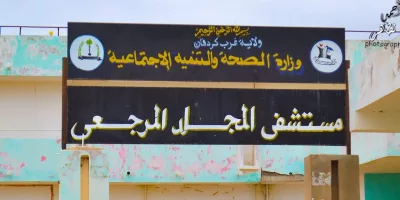Press Release
The Committee for Justice (CFJ) has monitored that Egyptian authorities prevented prominent publisher, journalist, and human rights advocate Hisham Kassem from traveling through Cairo International Airport.
The travel ban was imposed as Kassem prepared to depart for Sarajevo, Bosnia and Herzegovina, to participate in a regional conference titled “The Arab Democratic Covenant: A Roadmap for Arab Democracy,” organized by the Arab Council. Kassem was scheduled to be the keynote speaker at the opening session of the conference. However, airport authorities stopped him, informing him of the travel ban.
– Previous incidents:
Kassem, former president of the Egyptian Organization for Human Rights, reported that he has been stopped at Cairo Airport on three prior occasions since his release last February. Despite prior interrogations by national security, he was ultimately allowed to travel to Istanbul and Prague, with no legal obstacles to his travel. This recent ban, he confirmed, lacks any legal justification or judicial mandate.
Kassem shared that a passport control officer informed him the ban was ordered by the Passport Administration and advised him to contact the administration for further clarification.
– Legal action:
Kassem has appointed his attorney, Nasser Amin, to contact the Egyptian Public Prosecutor’s office to determine the reasons for the ban. He suspects that national security or intelligence agencies may have intervened, potentially based on a “fabricated investigation report” or a new unfounded case, as had happened to him last year.
Kassem expressed his dissatisfaction with the ongoing restrictions and limitations imposed by Egyptian security authorities, reiterating his stance that the persistence of military rule under President Abdel Fattah el-Sisi, or any other military leadership, would lead to further economic and social decline.
– Denouncing restrictions on freedom of movement:
CFJ denounces the arbitrary measures imposed by Egyptian authorities against Hisham Kassem and other human rights defenders, urging an immediate halt to such actions and calling for his right to freedom of movement in line with Article 62 of the Egyptian Constitution. This article guarantees citizens’ freedom to move, reside, and emigrate, stating that “no citizen shall be expelled from the country or barred from returning to it,” thus safeguarding citizens’ rights to unrestricted movement.
The travel ban also constitutes a breach of Egypt’s international obligations under Article 12 of the “International Covenant on Civil and Political Rights,” which states that “everyone lawfully within the territory of a State shall, within that territory, have the right to liberty of movement and freedom to choose his residence.” Restrictions on this right should only be imposed when necessary to protect national security or public order, which, in Kassem’s case, has not been substantiated.
CFJ urges Egyptian authorities to end their targeting of human rights defenders and cease unlawful restrictions that hinder their legitimate and peaceful activities. CFJ further calls on authorities to foster a conducive and safe environment for their work in defending fundamental rights, aligning with Egypt’s national and international obligations to protect human rights, freedom of expression, and freedom of movement. This advocacy is essential to the broader efforts of promoting justice and social stability within the country.






